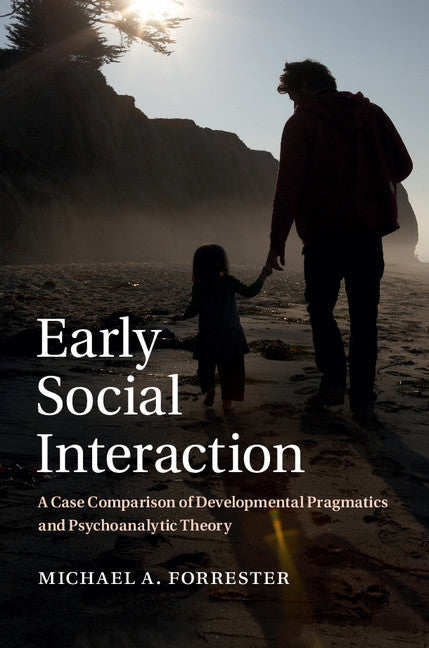Freshly Printed - allow 8 days lead
Couldn't load pickup availability
Early Social Interaction
A Case Comparison of Developmental Pragmatics and Psychoanalytic Theory
This book considers how a young child becomes a member of culture through the practices and procedures of everyday conversation.
Michael A. Forrester (Author)
9781107044685, Cambridge University Press
Hardback, published 27 November 2014
301 pages, 11 b/w illus. 1 table
23.5 x 15.8 x 2 cm, 0.55 kg
'… a novel approach to examining a child's entrance into the social world … Recommended.' J. F. Heberle, Choice
When a young child begins to engage in everyday interaction, she has to acquire competencies that allow her to be oriented to the conventions that inform talk-in-interaction and, at the same time, deal with emotional or affective dimensions of experience. The theoretical positions associated with these domains - social-action and emotion - provide very different accounts of human development and this book examines why this is the case. Through a longitudinal video-recorded study of one child learning how to talk, Michael A. Forrester develops proposals that rest upon a comparison of two perspectives on everyday parent-child interaction taken from the same data corpus - one informed by conversation analysis and ethnomethodology, the other by psychoanalytic developmental psychology. Ultimately, what is significant for attaining membership within any culture is gradually being able to display an orientation towards both domains - doing and feeling, or social-action and affect.
1. Introduction
2. Developmental pragmatics and conversation analysis
3. Child-focused conversation analysis
4. A psychoanalytic reading of early social relations
5. Repression and displacement in everyday talk-in-interaction
6. Research practices and methodological objects
7. Learning how to repair
8. Learning what not to say: repression and interactive vertigo
9. A question of answering
10. Interaction and the transitional space
11. Self-positioning, membership and participation
12. Discourses of the self and early social relations
13. Social practice and psychological affect.
Subject Areas: Child & developmental psychology [JMC], Psychoanalytical theory [Freudian psychology JMAF], Psychology [JM], Social & cultural anthropology, ethnography [JHMC], Sociology [JHB], Sociology & anthropology [JH], Social interaction [JFFP], Applied linguistics for ELT [EBAL], Linguistics [CF], Language [C]


